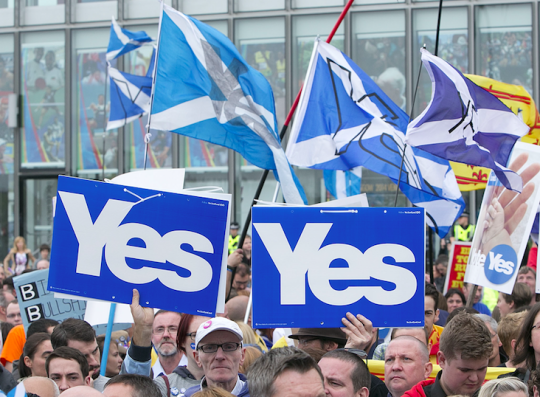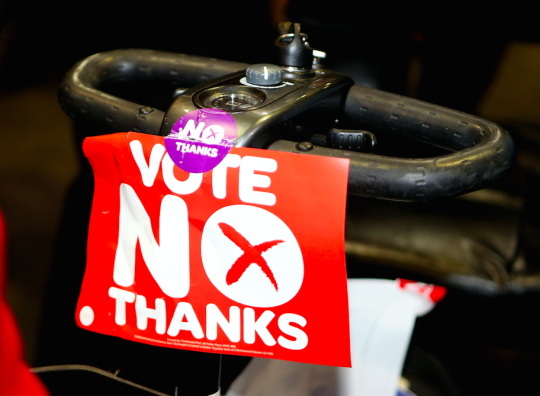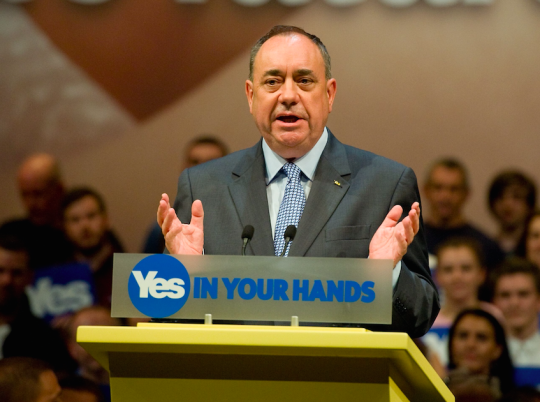Scottish Independence Referendum: Seven Things We Have Learned One Year On

A year ago this week, Scotland voted decisively to stay part of the UK after a tense and fraught independence campaign.
At one point looking like the results would be on a knife edge, the Scottish Independence Referendum instead put an end to the Scottish National Party’s (SNP) desire to break away from the rest of Britain.
With over 55% of the vote, the ‘Yes’ side prevailed on September 18 2014 and the idea of Scotland being an independent nation was locked up for a generation.

But with the SNP - led by Nicola Sturgeon - surging in popularity since the referendum, the party is declaring that another referendum could be on the cards in the next five years.
So what have we learned from last year’s referendum?
1.You can lose but still win.
The Yes campaign may have lost the referendum, but in the wake of the vote the SNP has enjoyed unprecedented success. Membership of the party has soared to well over 100,000, it won an unprecedented 56 of the 59 Scottish seats up for grabs in May’s general election, and polls for next year’s Holyrood election have put support for the SNP at more than the three main unionist parties combined.

2. You can win but still lose.
Labour may have been at the forefront of the successful Better Together campaign, but since the referendum vote support for the party has been spiralling downwards. Labour has lost not one but two Scottish leaders, and all but one of its MPs at Westminster. Scottish Labour’s latest new leader, Kezia Dugdale, faces a stiff challenge to rebuild the party ahead of the 2016 Holyrood election.
3. You do not have to be in the SNP to support independence.
While independence is at the heart of the SNP, there were others who backed Scotland breaking away from the UK, including the Scottish Greens, left wingers from Solidarity and the Scottish Socialist Party and even some Labour members - who set up the Labour for Independence group.
4. A generation is a very vague period of time.
Alex Salmond hailed last year’s vote as a “once in a generation” ballot. But with support for the SNP on the rise - and a poll recently showing a majority now in favour of Scotland leaving the UK - some in the SNP will want a second referendum sooner rather than later.

5. Gordon Brown may not have saved the world, but he might just have saved the Union.
Back in 2008, a slip of the tongue at Prime Minister’s Questions saw Mr Brown say his government had “saved the world” - he most likely meant to say “saved the banks” - but by playing a key part in setting up “the vow” on more powers for Holyrood and by being at his barnstorming best in a speech on the eve of the referendum, he certainly played his part in keeping the UK together.
6. You do not need to get on with your workmates as long as they get the job done.
Labour and the Conservatives managed to put aside their differences and work together in Better Together, the successful cross-party campaign to save the union.
7. The polls are usually right.
Less than two weeks before the referendum, a shock poll gave the Yes campaign a narrow lead. But all the other polls predicted Scotland would stay in the UK. They were right.

 Yahoo News
Yahoo News 
